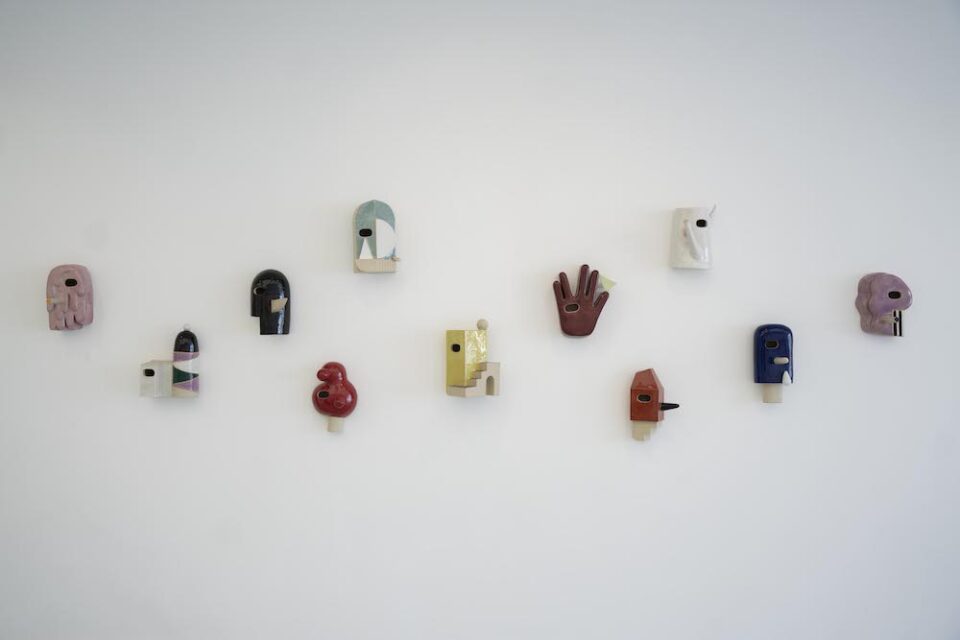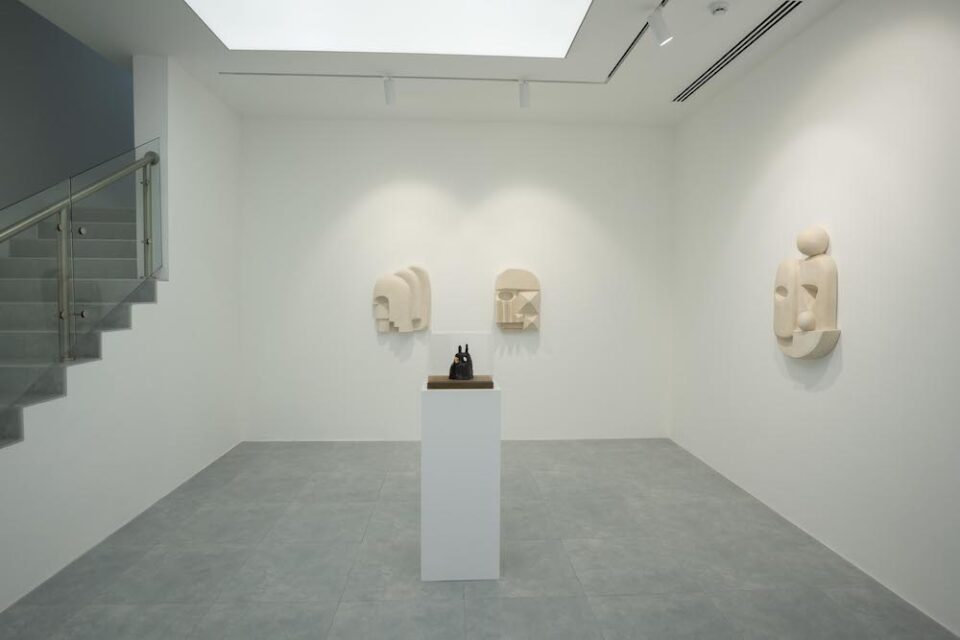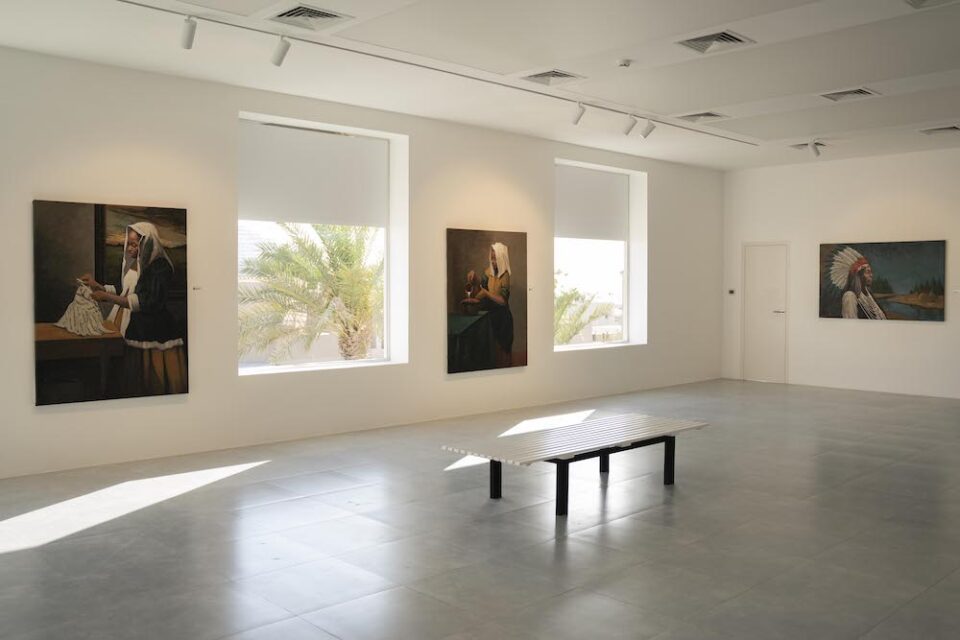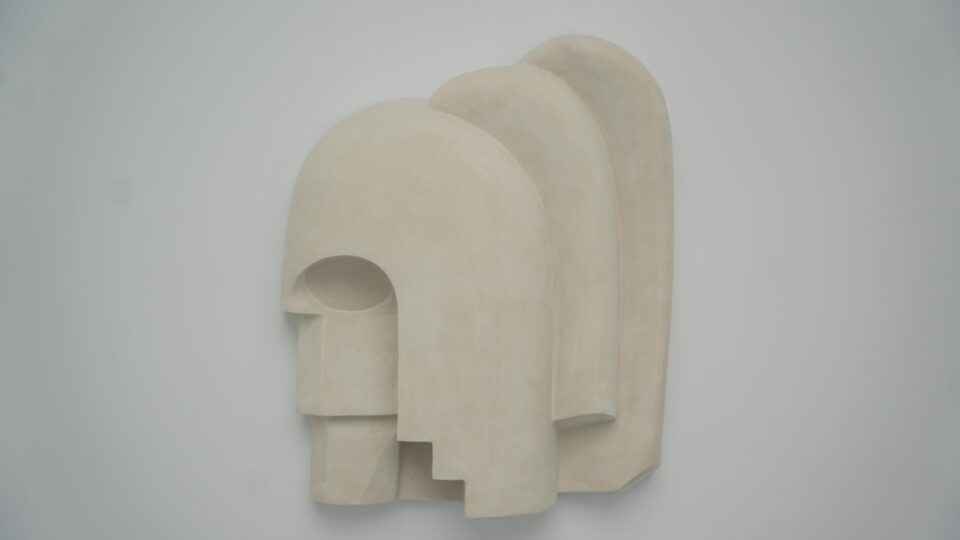Every second, 127 new devices are connected to the internet. The processing capacity of computers doubles every 18 months. Our dependence on technology is increasing daily. Artist duo Feipel & Bechameil are deeply influenced by these statistics, considering the consequences of a robotised world on humans. Their multidisciplinary works ask questions such as: how has technical progress influenced our lifestyles and social aspirations? What kind of future is taking shape?

In the latest show at Zidoun-Bossuyt Gallery’s new space in Dubai, viewers will find a bright white cassette player attached to the wall. It brings to mind Rachel Whiteread’s Turner Prize-winning sculptures of houses, stairways and hot water bottles. Whilst in-situ, a circular blue portion of the object spins – reminiscent of the segmented geometric paintings of De Stijl. It adds a sense of movement and colour to an otherwise obsolete 1990s object; it’s striking how vintage the object feels in today’s on-demand world.

This is just one instance in which Feipel & Bechameil re-appropriate elements of art history. They’ve long been interested in utopian movements: hints of Dada, De Stijl, Cubism, Constructivism and Bauhaus can be found throughout their oeuvre. “Before the invention of the atom bomb, these movements believed in the compatibility of technical progress and humankind,” notes Zidoun-Bossuyt Gallery.

Also on view is the Rebels series, from which the exhibition takes it name. These works depict abstracted and geometric and human figures. One such work is shown at the top of the page, with side profiles cascading downwards against a bright white backdrop. Shapes of unusual plants and animals also pop up in the duo’s reliefs – “hybridised with synthetic forms, composite alloys and robotic systems.” In this way, Feipel & Bechameil ask questions about how artificial and living forms can exist positively side-by-side.

Starting a new programme at Zidoun-Bossuyt’s new Dubai space is a double exhibition by Nigerian artist Awodiya Toluwani – who is also deeply engaged with history and legacy. Amongst the works in Echoes of Servitude are portraits which take a critical view of sociocultural issues faced by Black women during the Victorian era, incorporating thousands of motifs in textured relief. These symbols include Adire (from the Yoruba people, Nigeria), Adinkra (from Ghana), the Nsibidi (from the Ejagham people, Nigeria). “History is a very essential part of human existence,” Toluwani says. “It gives us a better understanding of lives lived in the past, better ways to live in the present and what legacy to leave for the future generations.”
Both exhibitions run until 25 June. Find out more here.
Installation views of Rebels and Echoes of Servitude courtesy Zidoun-Bossuyt Gallery.





